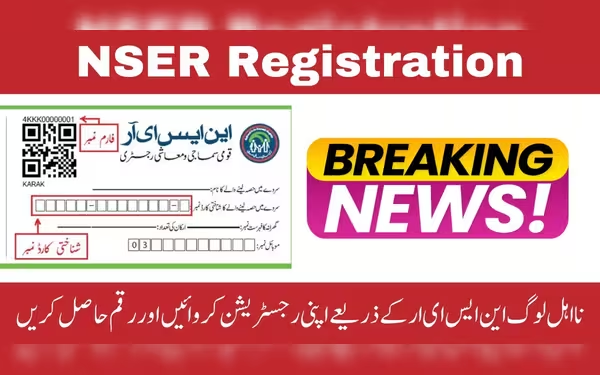Sunday, July 7, 2024 11:12 AM
Deputy Director BISP Sargodha oversees NSER registration drive
- Registration centers set up in Sargodha for low-income individuals
- Strict emphasis on accuracy of information provided during registration
- Inclusive approach aims to extend support to wider population segments
 Image Credits: 8171 Ehsaas Program
Image Credits: 8171 Ehsaas ProgramThe National Socio-Economic Registry (NSER) survey under BISP in Sargodha emphasizes accurate registration for potential government subsidy initiatives, aiming for inclusive support across various socioeconomic segments.
The National Socio-Economic Registry (NSER) survey of the Benazir Income Support Programme (BISP) is currently conducting registration in Sargodha, along with other regions across the country. Deputy Director BISP Sargodha, Malik Mazhar Awan, has confirmed that registration centers have been set up by tehsil offices to facilitate the process.
Low-income individuals are encouraged to register by visiting these centers, which are operational from Monday to Saturday. To complete the registration, applicants must bring their Computerised National Identity Cards (CNICs) and B forms of their children. Additionally, those with utility connections are required to provide their electricity or gas bills for potential future subsidy considerations.
A strict emphasis has been placed on the accuracy of information provided during registration. False information will result in disqualification from the programme. Any complaints or concerns regarding the BISP can be addressed by contacting the relevant office for prompt resolution.
Deputy Director Awan highlighted the importance of data compilation not only for quarterly cash transfers but also for potential inclusion in other government subsidy initiatives. The aim is to assist individuals across various socioeconomic segments during emergency situations based on their recorded data.
The ongoing registration drive aims to encourage participation from not only the impoverished sections but also the middle, lower, and upper-middle classes. This inclusive approach will enable the government to extend support and facilities to a wider spectrum of the population when needed.













